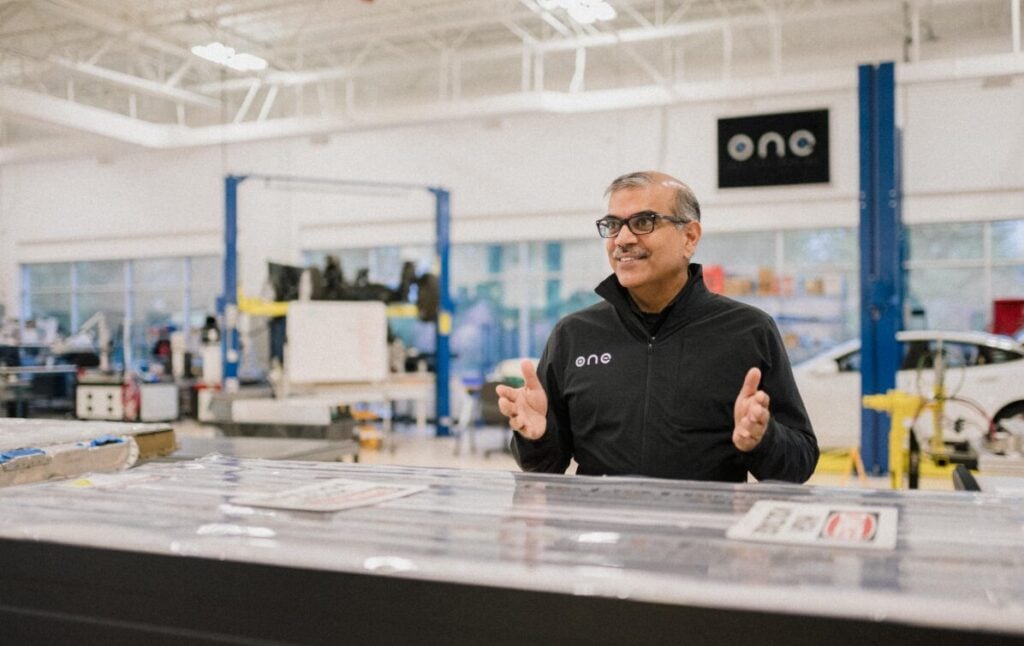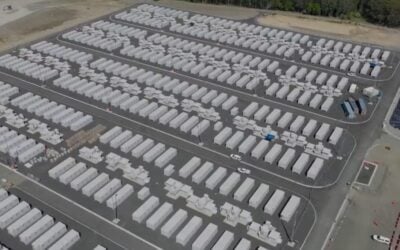
In a contrasting double-header of news for the US energy storage ecosystem, Our Next Energy (ONE) has launched US-made cells, modules and BMS while BESS manufacturer American Energy Storage Innovations (AESI) is winding down its business.
ONE said yesterday (15 May) it was launching US-manufactured 314Ah lithium iron phosphate (LFP) cells, an ‘Aries Grid Module’, and a battery management system (BMS), all designed for the battery energy storage system (BESS) market.
It said that from 2027 the products will qualify for the 10% domestic content investment tax credit (ITC) adder using the Internal Revenue Service’s (IRS) safe harbor table methodology. It will also comply with the European Union’s Battery Passport requirements.
“The increased load demand by data centers and manufacturing on the US utility grid has fueled the growth of the energy storage industry, creating an incredible need for domestically made cells, modules and battery management systems,” said Mujeeb Ijaz, CEO and founder of Michigan-based ONE.
Try Premium for just $1
- Full premium access for the first month at only $1
- Converts to an annual rate after 30 days unless cancelled
- Cancel anytime during the trial period
Premium Benefits
- Expert industry analysis and interviews
- Digital access to PV Tech Power journal
- Exclusive event discounts
Or get the full Premium subscription right away
Or continue reading this article for free
“There has never been a better opportunity for US companies to invest in and build more energy storage systems to help the country transition to electrification,” he added.
These aren’t the first BESS-related announcements by ONE, having announced it would provide battery technology to system integrator GE Vernova and provide full BESS for a microgrid project in West Virginia. The firm has a battery gigafactory in Michigan, primarily to serve the EV market.
This announcement may therefore be about reiterating its US domestic content-compliant offering in light of the big news from the Capitol this week, covered by Energy-Storage.news yesterday. Republicans appear to be aggressively targeting the use of foreign technologies in clean energy projects with changes to the Inflation Reduction Act’s tax credits, via the budget reconciliation bill being pushed through Congress.
American Energy Storage Innovations (AESI) winding down business
In related but contrasting news, BESS company American Energy Storage Innovations (AESI) is winding down its business, according to employee posts on LinkedIn.
Marketing manager Jessica Tatem posted that “AESI is winding down the business” while director of applications engineering Alex Koudriashov said that the “renewable market headwinds cut AESI’s trajectory short”. Around a third of AESI’s c.60 employees on LinkedIn have set their profiles to ‘Open To Work’.
Energy-Storage.news has reached out to AESI contacts, including CEO Bud Collins, but did not receive a response. Collins gave an interview to Energy-Storage.news last year (Premium access) in which he explained that the company was US-headquartered with US intellectual property (IP), US-manufactured BMS and EMS technology, but that manufacturing of its TeraStor BESS would be done in China and Malaysia.
He said that at the time even with the US tariffs on China and domestic content tax credit incentives, China was still far cheaper. Indeed, at the time, the tariff on Chinese batteries was only around 11%.
That rate has soared since, with the current tariff rate at 40.9% amidst a 90-day pause on significantly higher duties.
Whatever the final figure, the direction of travel to higher tariffs and more controls on foreign technologies may have made the company’s position of manufacturing in East Asia untenable. Energy-Storage.news will update this article if AESI gets back to us.





